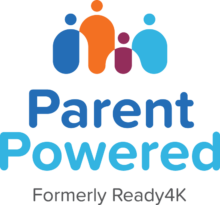Engaging the Diverse Cultures in Your School Community
Watch the RecordingListen to the Podcast
Family communications programs are critical for student support. However, many times these well-intentioned efforts don’t effectively engage parents and caregivers because they don’t actually reflect the needs of the different members of the school community.
Understanding that each cultural group will have its own requirements, ParentPowered, which delivers digital family engagement tools, studied how effective their programs were at engaging Black parents and caregivers. Researchers and family engagement experts on the edLeader Panel “Elevating the Voices of Black Parents and Caregivers: Effective Practices for Partnership and Engagement” explained what they learned about the importance of collaboration during the research and the strategies that can foster effective programs.
Understand that there is no single approach for any cultural group. Researchers for the study needed to recognize the diversity in the Black community and make sure that they focused on getting input from across the population.
Share clear goals with the community as to how you will use the research. Historically, Black and Brown families are fatigued by people wanting to do research when there are no clear outcomes for them. Have concrete expectations that you can communicate at every stage. Also, give them an honest assessment of the time commitment and compensation. (If you’re being paid to be at the table, so should caregivers.)
Use research methods that honor the impact of cultural factors. For this study, researchers used Culturally Responsive and Equitable Evaluation (CREE) and Community-Based Participatory Research (CBPR).
Engage in culturally centered strategies for the literature review. First, this requires having explicit racial conversations and understanding the inequities that the community faces. This will allow the researchers to more confidently engage caregivers about their own concerns about inequities in education. In addition, the researchers had to understand the strengths of the current cultural framework and the best practices already used outside of school. For the ParentPowered study, they acknowledged the wisdom of Black parents and caregivers as they looked for solutions to drive deeper engagement.
Engage the parents and caregivers in the process. This will eventually include surveys and focus groups, but the first step should actually be having members of the community help you develop the research questions. Give them agency over the entire process by centering it on the caregivers. And after you’ve developed the questions, involve the families in reviewing the results. At each step, let the participants see how you are presenting the information and get their feedback to make sure you have understood their intentions.
Interview the educators. The teachers and staff obviously play a critical role, but just telling them what to do won’t make them more effective. They need to be involved in identifying the gaps they see in the classroom from needing culturally sensitive pedagogy to using learning resources that reflect the community.
Don’t forget the data. Co-develop new metrics to measure change over time that are culturally respectful.
ParentPowered received invaluable feedback from this study.
- Images matter–they found that they needed to not just look at the overall diversity of images used but diversity within each community.
- Watch the language–similarly, they learned that phrases they thought were commonplace were not universally understood.
- Professional development is essential–administrators and staff will need continuous training on how to work with the different cultural groups in their community.
- Nothing should be fixed–this is an iterative process that will continue for the life of the school.
Finally, remember that it can take time to build trust with a cultural group. If there aren’t any families currently that would be willing to assist with the research, start with community-based organizations they already trust. This could be religious institutions, sports coaches, etc., who can help facilitate conversations. Once you have some initial participants lined up, ask them to bring someone with them to the first meeting. By letting them have a “plus one,” you are giving the participants agency in creating the focus group as well as adding to the diversity of experiences.
Learn more about this edWeb broadcast, Elevating the Voices of Black Parents and Caregivers: Effective Practices for Partnership and Engagement, sponsored by ParentPowered.
Watch the RecordingListen to the Podcast
Join the Community
Community & Family Engagement is a free professional learning community where district and school administrators, teachers, counselors, support staff, and all educators can connect and share ideas, practices, and resources to support students and families and engage the community in helping students learn and thrive.
Research shows that families play a powerful role in fostering children’s development. ParentPowered is on a mission to help K–12 districts provide accessible, evidence-based family engagement curriculum, without adding more to teachers’ plates. Our program — for PreK through grade 12 — supports, inspires, and activates parents and caregivers with simple, strengths-based insights they can turn into everyday teachable moments. Learn more and request a demo at parentpowered.com.
Article by Stacey Pusey, based on this edLeader Panel






Comments are closed.